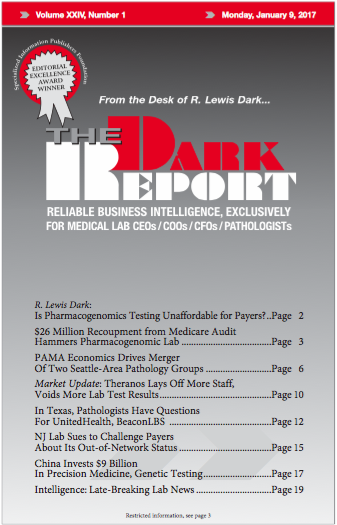This is an excerpt from a 1,340-word article in the January 9 issue of THE DARK REPORT. The complete article is available for a limited time to all readers, and available at all times to paid members of the Dark Intelligence Group. CEO SUMMARY: Pharmacogenomic testing is expected to be a linchpin to the practice of …
Pharmacogenomic Testing Draws $26 Million Recoupment from Medicare Audit Read More »
To access this post, you must purchase The Dark Report.


